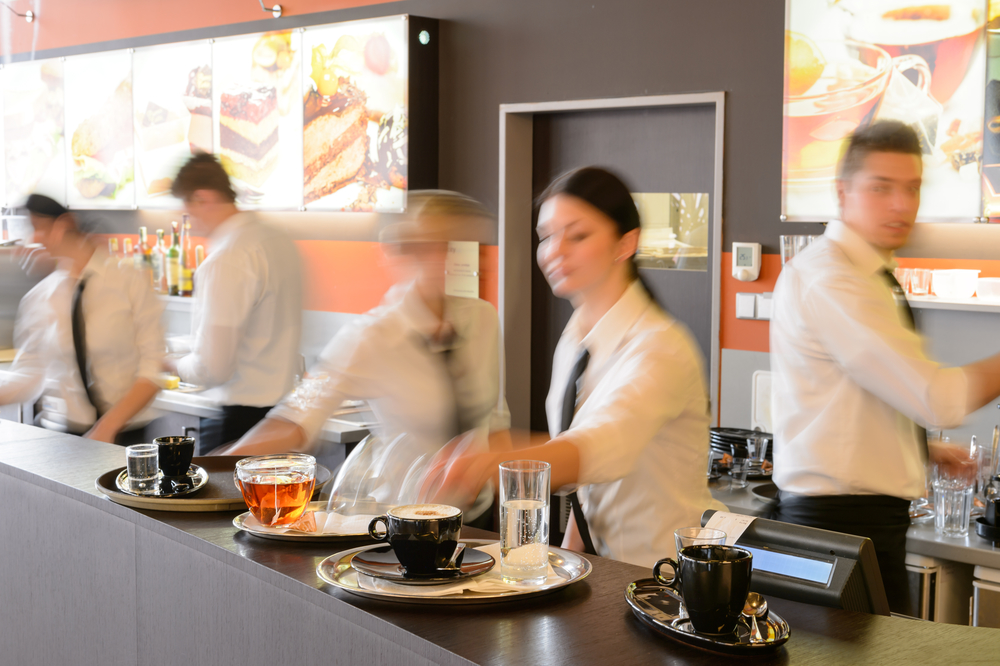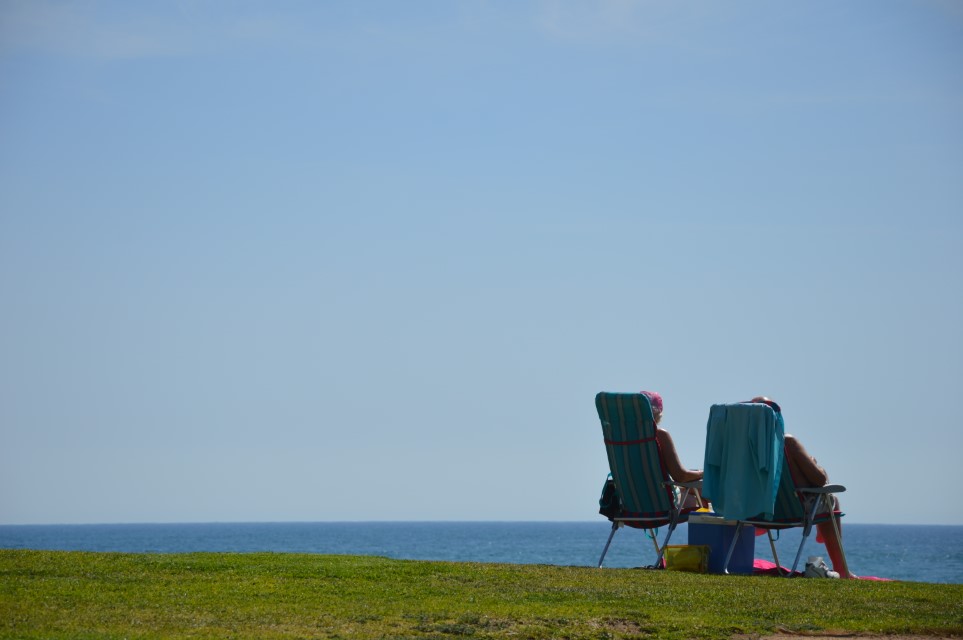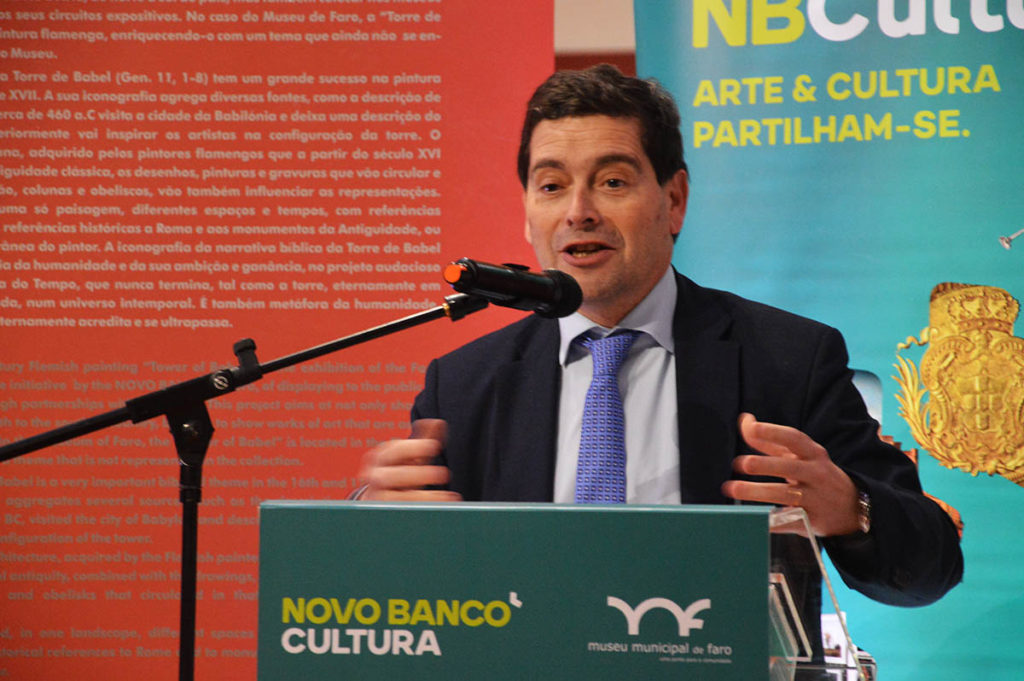«The Algarve has grown well in recent years, compared to the rest of the country», but the weight of services, especially Tourism, is greater than the national average, so «diversification of the regional productive base is an important challenge for the future". The diagnosis was made by António Ramalho, CEO of Novo Banco, last week, during a working dinner in Faro, with regional newspapers, including the Sul Informação.
For this responsible, «the growth levels of the Algarve are good, but very based on tourism». In the region, "there is a limitation that is the people, because there is a lack of workers to respond to the growing demands of Tourism."
On the other hand, he argues, «we have not yet had the art and ingenuity of diversifying the offer of complementary services», creating «capacity in tourism and reducing the import of goods, creating more consistency in the supply chain that tourism allows».
António Ramalho added that «the major challenges that the Algarve will face are to boost this structure of tourism, creating more RevPar (income per room) on top of tourism, and at the same time ensuring that tourism and its multiplier effect are verified more on the region and not on imports or other regions of the country”.
The diagnosis presented by the chairman of the Board of Directors of Novo Banco, on the Algarve in the National Context, begins by pointing out that the Algarve's GDP (about 9 billion euros) represents only 4,6% of the Portuguese GDP. NUTSII region with the lowest weight on the continent.
However, the GDP per capita, that is, per inhabitant, of the Algarve is the 2nd highest in the country, just after Lisbon. But this is not good news since, recalled António Ramalho, «the high GDP per capita penalizes the region in attracting European structural funds».
On the other hand, stressed the CEO of Novo Banco, the Algarve region "lives on services and increasingly", with tourism gaining weight.
In 2017, for example, 87% of the regional economy's GVA came from Services, 3% from Agriculture, forestry and fishing, and only 10% from the manufacturing and extractive industry, which also includes construction and even the treatment and distribution of water, sanitation and waste management.
In other words, he stressed, «the Algarve has been losing more and more in industry», which, for example, in 2005, represented 16% of the GVA (although certainly with a great weight from construction and not exactly from industry per se).

However, despite the growth that the region's economy has witnessed in recent years, António Ramalho draws attention to a «issue that limits this growth, which is the lack of people».
"There is a reduction in the active population, which is currently 268 people, but which will be only 235 in 2080," he stressed. “This restricts the growth of the productive potential” of the Algarve economy.
And even immigrant workers are not able to mitigate this reality, as their number has also suffered an apparent decrease, despite having been a “small recovery in recent years”.
«Projections point to a relative stagnation of the region's population in the medium term (and a fall in the long term), with an increase in the elderly population (including the contribution of foreign retirees), and a continued reduction in the weight of the population of working age , which constitutes an important challenge for the growth prospects' of the Algarve.
The CEO of Novo Banco, in his analysis of the region's economic reality, also pointed out that the demographic factor is important in yet another aspect: that of the unemployment rate.
In recent years, he pointed out, «the unemployment rate in the Algarve has registered a sharper decline than in the country as a whole, reaching, in 2018, 6,4% of the active population».
But «the average remuneration of workers in the Algarve is lower than in the rest of the country». On the other hand, despite the fact that employment is heavily concentrated in Services (83%), with the great weight of Tourism already mentioned, the increase in average monthly earnings has been smaller in Algarve Services workers than in other sectors, such as Education.
In the Algarve region, in terms of corporate turnover, the sectors of Commerce, Accommodation and Restaurants and Construction stand out.

This region has a weight of only 2,4% in the total national turnover of companies, but this expression is «clearly higher in Accommodation and Restaurants, with a weight of 13,6%, and in Construction, with 4,7 %'.
«It can be seen that there has been positive growth in all sectors», but it is above all in Commerce, Accommodation and Restaurants and Construction that this increase is noted. "We are growing in sectors where we are stronger, which has not added much to the diversification of activities," explained that administrator.
In relation to the sectorial pillars, Tourism, as already seen, is the one that stands out. «The Algarve Tourism has a decisive weight in the Portuguese economy», representing close to 50% of the GVA generated by tourism.
However, "in 2018, there were some signs of moderation in activity associated with foreign tourists", which could sound alarm bells.
António Ramalho pointed out that “one third of the quota of foreign guests in the Algarve is from the United Kingdom. But the recent fluctuation of the pound and doubts about Brexit create many instabilities». And France, which is "a recent growth phenomenon", is not enough to make up for the British fall.
Still in terms of Tourism, its income is growing, but «decelerating», especially in the Algarve, where, in relation to the rest of the country, the growth of income per room has been «smaller» and where it continues to be «higher than seasonality in occupation'.
Tourism, added the chairman of the Board of Directors of Novo Banco, "is an extraordinary lever" for the regional economy.
However, because economic activity is so focused on tourism, with little expression in other sectors, such as fisheries or agriculture, the region ends up «wasting in part this leverage effect, by not producing what tourism requires». Because much of what is consumed in the Algarve, for alimentar tourist accommodation and catering come from outside the region and even outside the country.
In his meeting with the heads of regional newspapers in the Algarve, António Ramalho also spoke about Novo Banco's position in the Algarve's economy. 51% of companies with a turnover of more than 2,5 million euros are customers of this bank, and these customers represent "almost two thirds of the turnover of restaurants and accommodation".
For all that, the Algarve has a weight of 11% in NB's activity, which “is significant”, according to its CEO.
António Ramalho's meeting with journalists was part of the «Summit do Algarve Os Nosso Campeões», which took place on the 21st, at the Centro de Congressos dos Salgados, with the presence of many champions Algarve, in the most diverse areas.
The person responsible for the private bank also took advantage of his visit to the region to visit companies and businesses that are NB clients.
The day before, António Ramalho chaired the delivery ceremony, to the Municipal Museum of Faro, from the work «Tower of Babel», a XNUMXth-century Flemish painting from the Novo Banco art collection.



















Comments